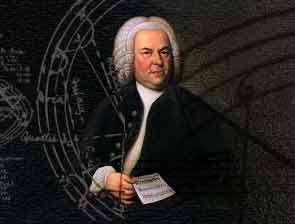A large number of Bach’s compositions are choral works, most of them centered on the liturgy and church services. They include over 200 sacred cantatas; secular cantatas; monumental works like the B Minor Mass, Christmas and Easter Oratorios, and St. Matthew Passion; and chorales, masses and motets. The motets fall into a special category of smaller-scale works which were often written for special occasions, such as weddings or funerals.
Bach composed this motet in 1736-7, when he was serving as the Cantor at St. Thomas Church in Leipzig. It was most likely written for a funeral. The original instrumentation calls for six brass instruments: 2 “litui” (horn-like instruments), a cornetto, and 3 trombones. The scoring for such portable instruments makes it likely that this introspective motet was used outdoors, either in a procession or a graveside service (Bach later re-orchestrated it for more conventional winds and strings for indoor church use).
The text of BWV 118 is taken from an early 17th-century hymn written by Martin Behm, which contains some 15 stanzas. Bach’s score indicates that multiple stanzas can be used, and for today’s performance we are using 2 of them (1 and 12). The music and text evoke the hope of redemption in death and entry into heaven.
| O Jesu Christ, meins Lebens Licht, Mein Hort, mein Trost, mein Zuversicht, Auf Erden bin ich nur ein Gast, Und drückt mich sehr der Sünden Last. Auf deinen Abschied, Herr, ich trau, | Oh Jesus Christ, my life’s light, my refuge, my comfort, my confidence, on earth I am only a guest and by sin’s burden sore oppressed. In your departure, Lord, I place my trust— |
O Jesu Christ, meins Lebens Licht
BWV 118
Composed in 1736-37
By Johann Sebastian Bach






